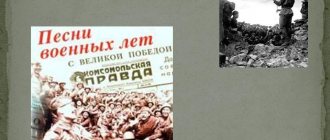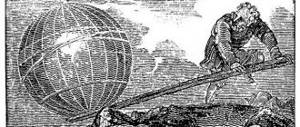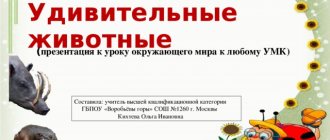Presentation for a literature lesson in 10th grade “I.S. Turgenev. "Fate and Creativity"
Ivan Sergeevich Turgenev (October 28, 1818, Orel - August 22, 1883, Bougival, France) - realist writer, poet, publicist, playwright, translator. One of the classics of Russian literature who made the most significant contribution to its development in the second half of the 19th century. Corresponding member of the Imperial Academy of Sciences in the category of Russian language and literature (1860), honorary doctor of the University of Oxford (1879).
I.E. Repin "Portrait of Turgenev"
The family came from an ancient noble family.
In a memorial book, the mother of the future writer wrote: “On October 28, 1818, on Monday, a son, Ivan, 12 inches tall, was born in Orel, in his house, at 12 o’clock in the morning. Baptized on the 4th of November, Feodor Semenovich Uvarov with his sister Fedosya Nikolaevna Teplova .”
Father Sergei Nikolaevich Turgenev (1793-1834) served at that time in a cavalry regiment and led a carefree lifestyle, squandered his finances and married for convenience to the middle-aged, unattractive, but very wealthy Varvara Petrovna Lutovinova (1787-1850). In 1821 he retired with the rank of colonel. Ivan was the second son in the family. The mother of the future writer, Varvara Petrovna, came from a wealthy noble family. Her marriage was not happy. The husband died in 1834, leaving three sons - Nikolai, Ivan and Sergei, who died early from epilepsy. The mother was a domineering and despotic woman. She herself lost her father at an early age, suffered from the cruel attitude of her mother and from a violent, drinking stepfather, who often beat her. Due to constant beatings and humiliation, she later moved in with her uncle, after whose death she became the owner of a magnificent estate and 5,000 souls.
The boy was taught literacy by frequently changing French and German tutors. In Varvara Petrovna’s family, everyone spoke exclusively French to each other. But both her native language and literature were not alien to her: she herself had excellent, figurative Russian speech, and Sergei Nikolaevich demanded that the children write letters to him in Russian during their father’s absences. The Turgenev family was friends with V. A. Zhukovsky. Varvara Petrovna followed the latest literature, was well informed about the works of N. M. Karamzin, V. A. Zhukovsky, A. S. Pushkin, M. Yu. Lermontov and N. V. Gogol, whom she readily quoted in letters to her son.
A love of Russian literature was also instilled in young Turgenev by one of the serf valets. Until he was nine years old, Ivan Turgenev lived on his mother’s hereditary estate Spasskoye-Lutovinovo, 10 km from Mtsensk, Oryol province. In 1827, the Turgenevs settled in Moscow to give their children an education.
In 1833, at the age of 15, Turgenev entered the literature department of Moscow University. At the same time, A. I. Herzen and V. G. Belinsky studied here. A year later, the family moved to St. Petersburg, where Ivan Turgenev moved to the Faculty of Philosophy at St. Petersburg University.
At first, Turgenev wanted to become a poet. In 1836 he graduated from the university. Dreaming of scientific activity, the following year he passed the final exam and received a candidate's degree.
In 1838, he attended lectures on the history of Roman and Greek literature at the University of Berlin, and at home he studied the grammar of ancient Greek and Latin, which allowed him to read the ancient classics fluently. The entire way of Western European life made a strong impression on Turgenev. The young student came to the conclusion that only the assimilation of the basic principles of universal human culture can lead Russia out of the darkness in which it is immersed.
Back in 1837, there were fleeting meetings with A.S. Pushkin. At the same time, Turgenev met A.V. Koltsov and M.Yu. Lermontov.
Turgenev's personal life was not entirely successful. In 1841, at the family estate Lutovinovo, Ivan became interested in the seamstress Dunyasha (Avdotya Ermolaevna Ivanova). An affair began between them, which ended with the girl’s pregnancy. Ivan Sergeevich immediately expressed a desire to marry her. However, his mother made a serious scandal about this, after which he went to St. Petersburg. Turgenev's mother, having learned about Avdotya's pregnancy, hastily sent her to Moscow to her parents, where Pelageya was born on April 26, 1842. Dunyasha was married off, leaving her daughter in an ambiguous position. Turgenev officially recognized the child only in 1857.
In 1840, Turgenev went abroad, visiting Germany, Italy and Austria. In 1841, Ivan returned to Lutovinovo. Since 1842, he became increasingly attracted to literary creativity.
In 1843 he met Pauline Viardot.
Turgenev first saw Polina Viardot on the stage of the opera house when the great singer was touring in St. Petersburg. Turgenev was 25 years old, she was 22 years old. Then, while hunting, he met Polina’s husband, the director of the Italian Theater in Paris, a famous critic and art critic, Louis Viardot, and on November 1, 1843, he was introduced to Polina herself. When her tour ended, Turgenev, along with the Viardot family, left for Paris against the will of his mother.
For his attachment to the “
damned gypsy ,” his mother did not give him money for three years. Turgenev lived with the Viardot family “ on the edge of someone else’s nest ,” as he himself said. Pauline Viardot raised his illegitimate daughter. Thanks to the Viardot family and Ivan Turgenev, their villa (“Villa Tourgueneff”) became the most interesting musical and artistic center in Baden-Baden. The war of 1870 forced the Viardot family to leave Germany and move to Paris, where the writer also moved.
Having lived for 38 years in close contact with the Viardot family, the writer felt deeply lonely.
Under these conditions, Turgenev’s depiction of love was formed, but love that was not entirely characteristic of his melancholy creative manner. There is almost no happy ending in his works, and the last chord is often sad. But nevertheless, almost none of the Russian writers paid so much attention to the depiction of love; no one idealized a woman to such an extent as Ivan Turgenev. The characters of the female characters in his works of the 1850s - 1880s - the images of integral, pure, selfless, morally strong heroines - formed the literary phenomenon of the “ Turgenev girl ” - the typical heroine of his works.
L.N. Tolstoy, noting the merits of the writer, said that Turgenev wrote amazing portraits of women whom Tolstoy himself observed later in life.
Since 1847, Ivan Turgenev participated in Sovremennik, where he became close to N. A. Nekrasov and P. V. Annenkov. The first chapters of “Notes of a Hunter” began to be published in the magazine, and the story “Khor and Kalinich” was published.
In Paris, he witnessed revolutionary events and forever endured a deep disgust for revolutions in general. A little later he became close to A.I. Herzen. In 1850 he returned to Russia, after the death of his mother, he tried to ease the hardships of the peasants he inherited.
In 1850-1852 he saw N.V. Gogol. After his death, he wrote an obituary, in which the authorities saw a rebellion and sent Turgenev to his native village, and only thanks to the efforts of Count A.K. Tolstoy, two years later the writer received the right to live in the capitals. In 1852 he wrote the story “Mumu”. After the death of Nicholas I, four novels were published: “Rudin” (1856), “The Noble Nest” (1859), “On the Eve” (1860) and “Fathers and Sons” (1862). In the autumn of 1855 he became friends with Leo Tolstoy.
In 1863 Turgenev settled in Baden-Baden. The writer actively participated in the cultural life of Western Europe, establishing acquaintances with the greatest writers of Germany, France and England, promoting Russian literature abroad and introducing Russian readers to the best works of contemporary Western authors. Among his acquaintances were William Thackeray, Charles Dickens, George Sand, Victor Hugo, Prosper Merimee, Emile Zola, Anatole France, Guy de Maupassant, Alphonse Daudet.
Despite living abroad, all of Turgenev’s thoughts were still connected with Russia. He wrote the novel “Smoke” (1867), which caused a lot of controversy in Russian society.
In 1868, Turgenev became a permanent contributor to the liberal journal Vestnik Evropy.
I. S. Turgenev acted as a consultant and editor for foreign translators of Russian authors, wrote prefaces and notes to translations of Russian writers into European languages, as well as to Russian translations of works by famous European writers. He himself translated Western writers into Russian and Russians into French and German. This is how translations of Pushkin’s works for French readers appeared. For some time, Turgenev became the most famous and most read Russian author in Europe, where criticism ranked him among the first writers of the century. In 1878, at the international literary congress in Paris, the writer was elected vice-president. On June 18, 1879, he was awarded an honorary doctorate from Oxford University.
The last years of Turgenev's life became for him the pinnacle of fame both in Russia and in Europe. His visits to Russia in 1878-1881 became real triumphs. All the more alarming in 1882 was the news of a severe exacerbation of a chronic disease. In the spring of 1882, the first signs of the fatal disease were discovered. With temporary relief, he continued to work and a few months before his death he published the first part of “Poems in Prose” - a cycle of lyrical miniatures, which became his kind of farewell to life, homeland and art. The book opened with the prose poem “Village”, and ended with “Russian Language” - a lyrical hymn in which the author invested his faith in the great destiny of his country:
“In days of doubt, in days of painful thoughts about the fate of my homeland, you alone are my support and support, oh great, powerful, truthful and free Russian language!.. Without you, how not to fall into despair at the sight of everything that is happening at home . But one cannot believe that such a language was not given to a great people!”
The last time Turgenev was in Spassky-Lutovinovo was in the summer of 1881. The sick writer spent the winters in Paris, and in the summer he was transported to Bougival, to the Viardot estate.
The confrontation between “ an unimaginably painful illness and an unimaginably strong organism ” (P.V. Annenkov) ended on August 22, 1883 in Bougival.
Doctor S.P. Botkin testified that Turgenev had the largest brain (2012 grams, which is almost 600 grams more than the average weight). Turgenev's death was a great shock for his admirers, resulting in a very impressive funeral. They were preceded by funeral celebrations in Paris, with the participation of over four hundred people. In accordance with the will of the deceased, on September 27, his body was brought to St. Petersburg.
The coffin with the body, sent by rail to Russia, traveled through East Prussia on September 22-23, 1883. According to eyewitnesses, at 6 o’clock in the morning in Verzhbolovo
“the same Prussian passenger train with which Turgenev’s body was supposed to arrive arrived. The body arrived, alone, without accompanying persons or documents, according to a baggage invoice, where it was written “1-deceased” - no first or last name. The body arrived in a simple baggage car, and the coffin lay on the floor, sealed in an ordinary travel luggage box...” Fearing funeral services and unrest, the police wanted to move the coffin with Turgenev’s body to the barn for three days.
On the platform of the Warsaw station in St. Petersburg there was a solemn meeting between the coffin and the body of the writer.
According to the memoirs of contemporaries, “... the march of the coffin to the Volkovo cemetery presented an unusual spectacle in terms of its majestic character and complete, voluntary and unanimous observance of order.
A continuous chain of people occupied a space of several miles, attracting sympathetic and often touched attention with magnificent wreaths with meaningful inscriptions. So, there was a wreath “To the Author of “Mumu”” from the Animal Welfare Society... a wreath with the inscription “Love is stronger than death” from women’s pedagogical courses... “On the dirt, on stinking damp straw, under the canopy of a dilapidated barn, hastily turned into a field military hospital , in a devastated Bulgarian village - she was dying of typhus for more than two weeks. She was unconscious - and not a single doctor even looked at her; the sick soldiers, whom she cared for while she could still stand, rose one by one from their infected lairs to bring to her parched lips a few drops of water in the shard of a broken pot.
She was young, beautiful; high society knew her; Even dignitaries inquired about it. Ladies envied her, men followed her... two or three people secretly and deeply loved her. Life smiled on her; but there are smiles worse than tears.
A tender, meek heart... and such strength, such a thirst for sacrifice! Helping those in need... she didn’t know any other happiness... she didn’t know - and didn’t know. All other happiness passed by. But she came to terms with this long ago - and, burning with the fire of unquenchable faith, she devoted herself to serving her neighbors.
No one ever knew what treasures she buried there, in the depths of her soul, in her very hiding place - and now, of course, no one will know.
And why? The sacrifice has been made... the deed is done.
But it’s sad to think that no one said thank you even to her corpse - even though she herself was ashamed and shunned all thanks.
Let her sweet shadow not be offended by this late flower, which I dare to lay on her grave!”
Poem “In Memory of Yu.P. Vrevskoy"
September, 1878
Yulia Petrovna Vrevskaya (1838 or 1841 - January 24, 1878) - baroness. Friend of I. S. Turgenev. During the Russian-Turkish War, she was a nurse at a field hospital of the Russian Red Cross.
Essay topics
1. “Real clashes are those in which both sides are to a certain extent right” (I. Turgenev).
2. “The greatest states collapsed through the fault of the young and were protected and restored by the old” (Cicero).
3. The meaning of the title of the novel “Fathers and Sons.”
4. Nihilism and nihilists.
5. “Restless and melancholy Bazarov is a sign of a great heart” (F. Dostoevsky).
6. Female images in the novel.
7. Turgenev - “the genius of proportion” (D. Merezhkovsky).
Information sources:
Yu.V. Lebedev. Literature. Grade 10. Textbook for general education institutions. Basic and profile levels. In two parts. M. "Enlightenment". 2013
https://yandex.ru/images/
https://ru.wikipedia.org/wiki/
https://ilibrary.ru/text/1378/p.19/index.html
Lesson notes on literature in 7th grade. I.S. Turgenev. "Poems in Prose".
—How I.S. Turgenev, without revealing the specific realities of the time in his work, conveys his feelings in a few words?
/ “In days of doubt, in days of painful thoughts about the fate of my homeland,” “how not to fall into despair at the sight of everything that is happening at home.”/
—How does the genre of a poem dictate the choice of plot material?
/ The work is based not on specific historical facts, but on the thoughts and feelings of the lyrical hero./
-What epithets does Turgenev characterize the Russian language in his work?
/ Great, powerful, truthful and free. There are only 4 of them. One of them sounds again, but in relation not to the language, but to the people - its bearer: “great language” - “great people.”/
Teacher's word.
These four definitions immediately entered the country’s cultural usage and began to be heard in critical works and journalistic speeches. After all, these words contain not only high praise, but also a description of specific qualities of the language.
This is what K. Balmont said about this poem in prose: “Turgenev sang such a hymn to the Russian language that it will live as long as the Russian language lives, which means always.” I would like you to remember that a person has one native language. For you and me, it’s Russian. Take care of it and don’t litter it!
Turgenev's poem is imbued with patriotic pathos, pride in his people, their history, culture, and language.
— Can the last sentence be called a rhetorical exclamation?
/It is possible, since a rhetorical exclamation is a technique of oratorical speech that contains a statement that does not allow objections./
I would like you to remember that a person has one native language. For you and me, it’s Russian. Take care of it and don’t litter it!
Generalization
.
So, we analyzed the prose poem “Russian Language”. Name the characteristic features of a prose poem.
— Small in volume;
- divided into small paragraphs;
- the writer expresses his feelings;
- there is no plot, this is the writer’s thoughts;
- no rhyme;
— the main thing in the poem is the lyrical beginning, that is, the thoughts and experiences of the lyrical hero.
So this is a prose poem.
Let's read the definition in the textbook. ( Prose poems are small prose works that resemble lyric poems in nature, but lack a poetic form).
Slide5
3. EXPRESSIVE READING BOTTOM of the prose poem “Twins” Commentary on the prose poem
(student speaks).
I.S. Turgenev in the poem talks about how two twin brothers, similar as two peas in a pod, argued. Their facial features, hair color, height and build were absolutely identical! The author sees something eerie in these faces twisted with anger, in the swear words spoken in the same voices... In my opinion, two twin brothers personify a single whole. Probably, in each of these people there lives a rejection of his brother as a reflection of himself, because we all want to be unique. In fact, this is true, and the outer shell means nothing. Hatred of a brother is, to some extent, hatred of oneself. Everything is mixed here: both hatred and love. The strongest and most vivid feelings. Each of the twins wants to insist on their own, to express their individuality, but at the same time, they will never overcome their “Sameness,” because the same blood flows in their veins. And it’s wonderful when there is a loved one on earth, a person you can call a brother...







